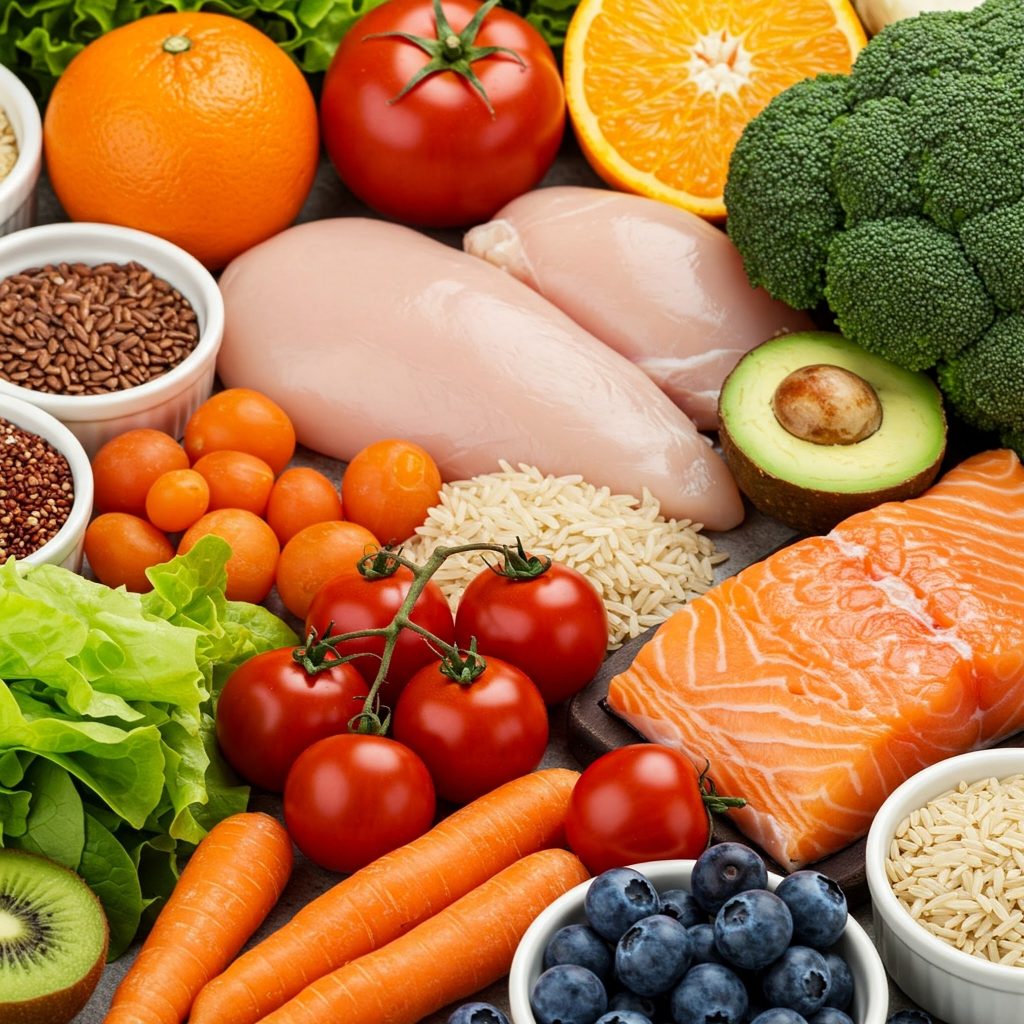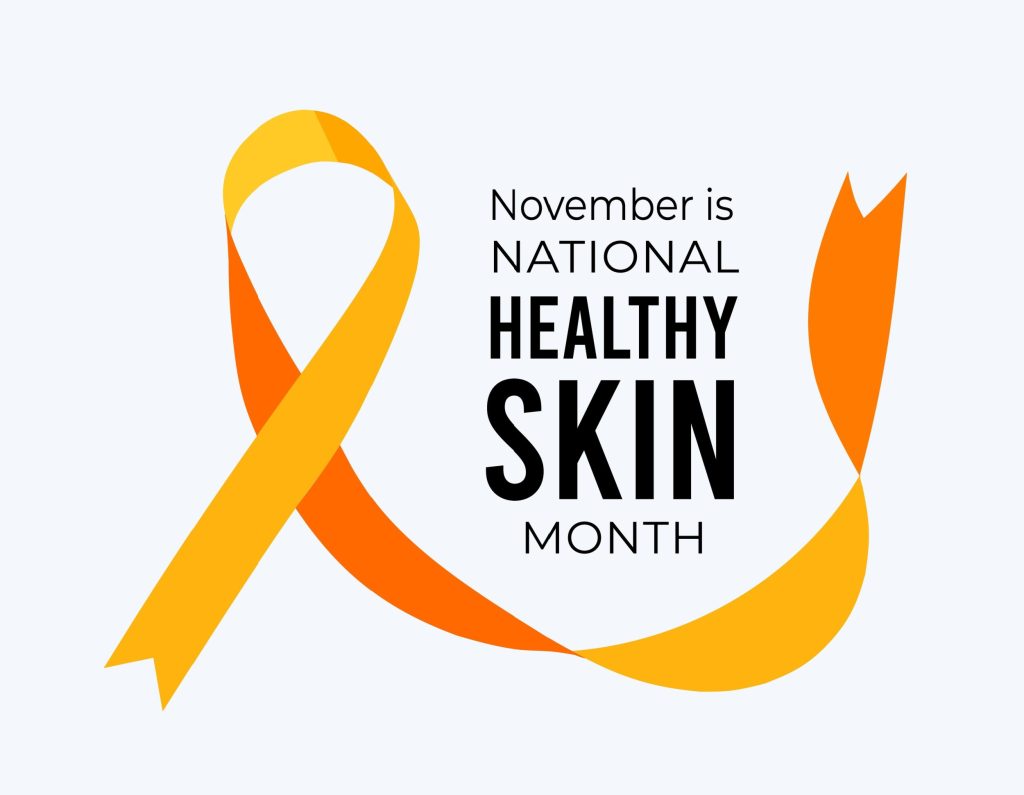
The link between diet and skin health is stronger than many people may realize. The skin is the body’s largest organ, and like every other system in the body, it relies on a steady supply of nutrients to function properly. Skin conditions like acne, eczema, and psoriasis are not just surface issues; they are often connected to inflammation and immune responses happening inside our bodies. The food we eat plays a powerful role in this connection. Nutrient-rich foods such as vegetables, fruits, lean proteins, healthy fats, and whole grains deliver vitamins, minerals, and antioxidants to the skin that help repair cells, strengthen the protective barrier, and calm inflammation. On the other hand, processed or nutrient-poor foods, such as sugary snacks, fried fast food, and refined carbohydrates, can spike blood sugar, disrupt hormones, and intensify inflammation – all of which can aggravate existing skin problems and make them harder to manage.
Intentional choices in your diet can make a visible difference in how your skin looks and feels. With the right foods, you can help fight inflammation and build better and a healthier complexion from the inside-out.
Why Low-Nutrient Foods Aggravate Skin Conditions
When the body is consistently fed with foods that lack important vitamins and minerals, skin health can decline. Processed foods and refined sugars provide little nutritional value and can drive inflammation, weaken the skin barrier, and slow healing. Over time, this creates a cycle where flare-ups become more frequent, and the skin struggles to recover.
Healing Foods That Support Healthy Skin
1. Antioxidant-Rich Fruits and Vegetables
Berries, leafy greens, carrots, and peppers help protect skin cells from oxidative stress and provide nutrients like vitamin C and beta-carotene that support collagen production.
2. Healthy Fats
Omega-3 fatty acids found in salmon, walnuts, and flaxseeds help reduce inflammation and soothe conditions like eczema and psoriasis.
3. Lean Proteins
Chicken, turkey, beans, and lentils provide amino acids, the building blocks for repairing skin tissue and maintaining strength.
4. Whole Grains and Fiber
Oats, quinoa, and brown rice help regulate blood sugar, preventing the spikes that can worsen acne.
5. Hydration
Water supports every skin function, from delivering nutrients to flushing out toxins. Herbal teas and water-rich fruits like cucumbers and melons also contribute.
The Gut-Skin Axis
In recent years, researchers have discovered that the gut and the skin are deeply connected through what’s called the gut-skin axis. The trillions of bacteria in your gut microbiome don’t just help digest food, they also influence your immune system, inflammation levels, and even skin conditions.
- A balanced gut microbiome supports a strong skin barrier, reducing dryness and irritation.
- Gut inflammation can show up as skin inflammation, often worsening acne, eczema, or psoriasis.
- Probiotic-rich foods like yogurt, kefir, sauerkraut, kimchi, and miso can help improve the diversity of good bacteria, which may calm inflammation in the skin.
- Prebiotic foods like garlic, onions, asparagus, and bananas help feed healthy gut bacteria, further supporting clear and resilient skin.
Caring for gut health is a direct way to care for your skin, making your diet one of the most powerful tools for long-term skin benefits.
Quick Tips for a Better Complexion
1. Choose Real, Whole Foods
Although supplements can help, it’s best to get your nutrition directly from whole, actual foods.
2. Choose a Colorful Plate
When you eat a wide variety of fresh fruits and vegetables, especially the rainbow-colored ones, you naturally get vitamins, antioxidants, zinc, selenium, fiber, and more.
3. Calm the Sugar Spike
Foods high on the glycemic index like white bread, cookies, sugary drinks, or fries cause blood sugar spikes. These spikes trigger inflammation and worsen acne and other skin concerns.
4. Be Wise With Dairy
For some people, reducing dairy intake can help with acne. If dairy is part of your diet, choose small amounts of cultured options like yogurt or kefir, which also provide probiotics that may support skin balance.
5. Choose Good Fats
As mentioned above, omega-3 fatty acids are powerful fighters of inflammation. They can soothe psoriasis, eczema, and acne by strengthening the skin’s barrier and reducing redness.
6. Follow the Pyramid of Healthy Eating
Think of your diet as a pyramid and try the following:
- Base: Fresh or lightly cooked fruits and vegetables
- Middle: Beans, nuts, seeds, whole grains, lean proteins, and omega-3-rich foods like salmon and olive oil
- Top: Sweets or indulgent snacks are ok in moderation, but best kept in small quantities
7. Add Antioxidants
Lycopene (found in tomatoes, papaya, watermelon and other reddish produce), and polyphenols (found in green tea, coffee, and blueberries) help reduce inflammation and protect your skin from free radical damage.
8. Keep it Simple
You don’t need a perfect diet to see results. Adding two servings of leafy greens daily, swapping soda for water, and incorporating healthy fats like olive oil or avocado can noticeably improve how your skin looks and feels.
Quick Tips for Eating Healthy on the Go
Healthy eating doesn’t need to be complicated, even when life is busy. A few small changes can help you stay consistent without stress:
- Snack Smart: Keep nuts, seeds, or fruit on hand instead of chips or candy.
- Hydrate First: Carry a reusable water bottle and skip sugary drinks.
- Prep Ahead: Wash and cut veggies or make overnight oats the night before so meals are ready to grab.
- Upgrade Takeout: If you’re eating out, look for options with grilled proteins, extra veggies, or brown rice instead of fried or breaded choices.
- Think Portable: Apples, bananas, baby carrots, and roasted chickpeas all travel well and provide nutrients that support the skin.
Small, consistent choices like these add up, and over time, they can reduce flare-ups and help skin stay well.
Remember What It’s All About
The bottom line is this: Skin conditions such as acne, eczema, and psoriasis are closely tied to inflammation. Nutrient-poor foods aggravate inflammation, while nutrient-dense, whole foods help the skin rebuild. By supporting gut health and making simple healthy swaps even on busy days, your diet can become one of the most effective tools for your long-term skin health.
About Us
FLDSCC’s team of providers are experts in diagnosing and treating skin cancers; skin conditions and diseases such as eczema, rosacea, dry skin, rashes, and warts; and chronic skin diseases and infections, while simultaneously tackling aging skin, wound care, and a multitude of other skin, hair, and nail concerns.
Several FLDSCC providers are fellowship-trained in Mohs micrographic surgery, an effective state-of-the-art treatment for most types of skin cancers. Mohs surgery involves minimal discomfort and encourages the greatest preservation of healthy tissue, which means less risk of scarring and superior cosmetic results.
FLDSCC has many convenient locations throughout the state. For more information, visit www.fldscc.com, or call (855) FLD-SKIN.


